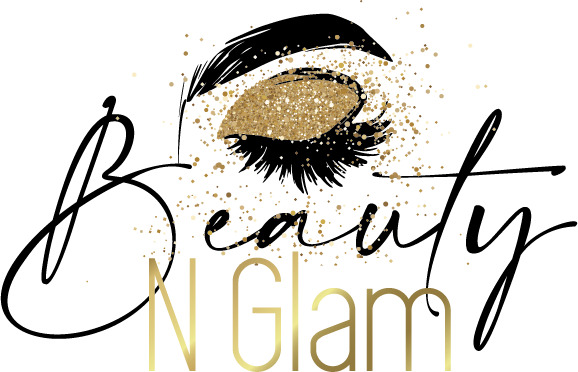Benzyl Alcohol
The easiest way to get a debate going in the beauty community is by bringing up the topic of preservatives—and parabens are at the forefront of that discussion. Some believe them to be toxic endocrine disruptors, while others say not enough research exists to support those claims. In an attempt to avoid the issue completely, many beauty companies are reformulating without the use of parabens in favor of alternative ingredients. And in the wake of those changes, consumers are left to wonder about the safety of the other ingredients being used instead, like benzyl alcohol, and whether or not preservatives are all that important in the first place.
Dermatologist Jessica Krant, MD, of Laser & Skin Surgery Center of New York says that preservatives actually do have an important role and deserve a place in your skincare products. "Preservatives are vital for any product that we want to last more than a few days in the bottle—and not have to keep in the refrigerator," she explains. "They help to keep germs out and to keep the products from turning rancid or discolored."
But because some might still be on the fence about using preservatives, we turned to Krant as well as Michelle Wong, chemistry PhD, and content creator at Lab Muffin Beauty Science for their expert opinions on one of the more common paraben alternatives.
BENZYL ALCOHOL
TYPE OF INGREDIENT: Preservative, antioxidant, and solvent
MAIN BENEFITS: Preserves, stabilizes, and dissolves ingredients
WHO SHOULD USE IT: In general, benzyl alcohol is safe to use by anyone who does not have a true contact allergy to it. Krant adds that those who prefer un-preserved products would want to avoid products containing standard preservatives like benzyl alcohol, though it may risk contamination.
HOW OFTEN CAN YOU USE IT: Benzyl alcohol is safe to use on a daily basis if you're not sensitive to it and if it's used at a low concentration.
WORKS WELL WITH: Benzyl alcohol works well with most, if not all, other ingredients.
DON'T USE WITH: Benzyl alcohol works well with most, if not all, other ingredients.
What Is Benzyl Alcohol?
Although it's most widely known as benzyl alcohol, the aromatic alcohol also goes by a few other names, such as benzenemethanol or phenylcarbinol. It's derived from fruit, comes in the form of a colorless liquid, and has a slightly sweet scent. As a multifunctional ingredient, you can spot benzyl alcohol on the ingredient label of many different skincare, cosmetic, and personal products, such as moisturizers, lip balms, face washes, and even makeup. According to Wong, it's primarily used in product formulation as a preservative to stop microorganisms from overgrowing in products, which could later lead to an infection.
"It's mostly used because of the scaremongering about parabens," Wong says. "Since a lot of consumers are worried about parabens, alternative preservatives have to be used for marketing reasons. It's found naturally, so companies can use it in products and still market them as 'natural.'
Benefits of Benzyl Alcohol for Skin
Besides possibly having antioxidant effects in certain formulas, benzyl alcohol doesn't have any specific benefits for your skin itself, but rather helps to optimize skincare formulas so that they can better perform for your skin. Here are a few key ways benzyl alcohol helps your products work more effectively:
-
Preserves the product: According to Krant, benzyl alcohol acts as a preservative in skincare and cosmetic products due to its ability to kill microbes—especially parasites. "Any cosmetic or personal care product that is made with no preservatives (for example, preservative-free eye drops) generally comes in individual single-use containers to prevent contamination by contact or air," she says. Benzyl alcohol allows products to be bottled in larger packages designed for more than one use.
-
Stabilizes the formula: Krant adds that the ingredient also acts as a stabilizing agent against the oxidative breakdown of the product, which means it allows your products to work more effectively for a longer period of time.
-
Has antioxidant activity: Krant says benzyl alcohol also has antioxidant properties, and antioxidants protect against free-radical damage.
-
Dissolves ingredients: Benzyl alcohol acts as a solvent and helps to dissolve other ingredients in a product's formula.
-
Decreases viscosity: Benzyl alcohol also decreases viscosity, which allows products to flow more easily.
-
Imparts a nice scent: As an aromatic alcohol, benzyl alcohol is naturally fragrant and gives off a slightly sweet scent.
Side Effects of Benzyl Alcohol
"Benzyl alcohol is considered to be a safe ingredient in skincare and cosmetics when used on intact skin," Krant says. With that said, you might have seen benzyl alcohol on a list of "bad" alcohols once or twice before.
-
Can cause itching for some people: "As is the case for most preservatives, benzyl alcohol can, unfortunately, be an irritant and cause itching for some people," says Krant.
-
Toxicity is possible with overuse: "Toxicity is a possibility with excessive ingestion, which is not considered a risk with normal usage," says Wong, adding that it's safe when used at a low concentration—and it usually is in well-formulated products.
However, Krant points out that only in rare cases is someone actually allergic to benzyl alcohol. If you experience an adverse reaction (such as swelling, or redness) to products containing benzyl alcohol and suspect you could have an allergy to it, Krant says this can be identified through formal skin allergy patch testing with your dermatologist or allergist.
As for more serious risks of using the preservative in your products, those concerns aren't as valid. "The potential for allergenicity is low, and low risk of toxicity," Krant says.
How to Use It
As long as you don't have an allergy to benzyl alcohol, Krant and Wong say it's totally fine to use in your regular skincare routine. Because the ingredient is included in such a wide range of cosmetics, the time of day you would apply it, as well as the step in your routine, depends on each specific product.
